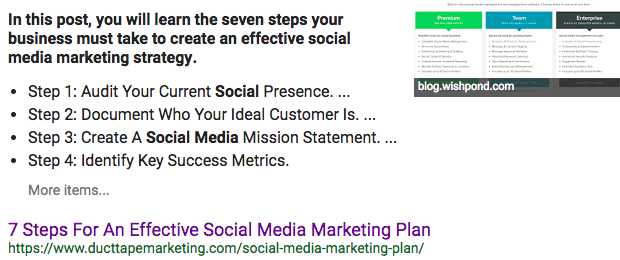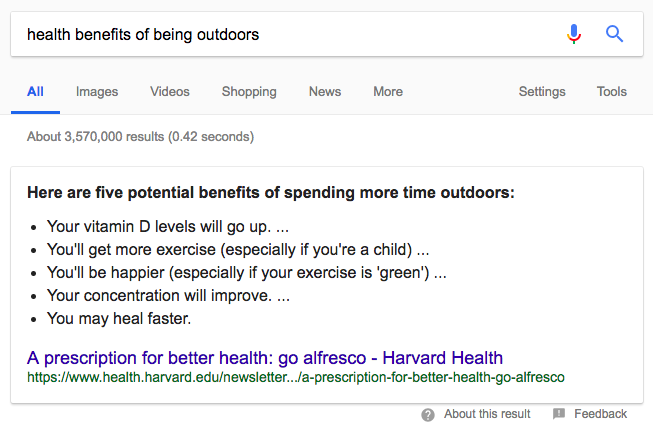Voice Search: What Small Business Owner’s and Marketers Need to Know written by John Jantsch read more at Duct Tape Marketing
Marketing Podcast with John Jantsch About Voice Search
An increasing number of people are turning to search devices, but not necessarily search engines per se. We have laptops and our phones, and then, of course, we’ve got these Alexa and Google Home devices. These are how people are actually now executing searches. Not all of it is direction-based (“Google, find a salon nearby). A lot of it is going to be assistant-based. It’s going to be playing our music. It’s going be turning our lights off. The sky’s the limit.
As marketers, we need to start embracing this idea of search using voice. Research says 50% of searches will be voice-based by 2020.
So are we in “panic mode” time? I don’t know if that’s the case, but we certainly are at “pay attention mode” time, even for the smallest of businesses.
In fact, for local businesses, this is coming faster than you might have realized or understood, and it may be more important for these businesses to pay attention to voice search more than any other business now. According to Search Engine Watch, mobile voice-related searches are three times more likely to be locally-based than text.
Yes, a lot of those searches have to do with looking for directions or trying to find a good place to do “X”. They’re not necessarily doing full-on research, say to hire an attorney or to hire a plumber necessarily, but a lot of transaction-based searches and location-based searches are happening through voice search in the local market.
According to Bright Local, 53% of people use voice search to find information on local businesses. Many say they use voice search daily (particularly on a smart speaker).
Smart speakers have clearly taken off in the past couple of years, with Google Home and Amazon’s Alexa dominating the marketplace. Google has really moved into the spotlight with their speakers this year because it’s so tightly integrated into search to begin with.
How people use voice search for local businesses
So, what are the things people search for? How do they use voice search for local businesses today? Making restaurant reservations receive the highest use, by far. Additionally, people are using it to find sales and offers from local businesses, as well as to find out which products a local business has in stock. In a nutshell, it consists of a lot of very product transaction-based searches.
What local businesses should do about voice search
Google My Business
If you’re a local business, you need to get really good at some of the things that Google has been telling us about for search anyway, such as optimizing your Google My Business listing. It’s now just become more important so you must embrace it and optimize it. Google is clearly showing signs that they’re not kidding this time. They are investing a lot of time and energy into Google My Business and continue to add features, which I think businesses need to be paying attention to. I’d recommend taking advantage of every new feature they offer, including Google Posts, Messaging, the new description, and product and service offerings. Don’t forget to add photos and videos as well.
Bottom line? Make sure the listing is claimed, accurate, and complete.
Featured Snippet
Have you ever done a search for something and see a full description at the top of the page? This is what people are starting to call position zero or the featured snippet.

What I believe Google is trying to do is get you to stay on the page. Why ever leave the search results if they can give you most of the answer they think you’re after? The featured snippet is what around 70% of voice searches bring up today. Google Maps results are also big for voice search results.
To get this coveted spot, start doing some brainstorming. Find some low intent terms that don’ have a featured snippet today and write an answer-based or list-based blog post that clearly gets at the intent of what those low intent search terms might be. You might want to take a look at Answer the Public to find questions or related phrases. A lot of times you can create content that more specifically addresses the search term or at least what the intent of a search term is.
Site speed and security
This has never been more important. If your site doesn’t load, you’re never going to show up in voice search results because that’s a bad experience.
According to my friend Brian Dean from Backlinko, 70.4% of Google Home result pages were secured with an HTTPS or SSL certificate. We need to all go to HTTPS, or have secure websites. At some point in 2018, you’re going to start seeing search results that indicate that a site is not secure.
As you can see, reputation matters more than ever. There’s a lot of indication that search results are not going to show up for companies with low ratings for voice search. Local media mentions are probably underrated, so make sure you pay attention to them and social signals as well (even though Google denies it, I believe that it does in fact matter).
Google Assistant
Google Assistant, which is really part of the Google Home piece, is really going to start doing things. They have a new tool that they’ve announced that’s been getting a lot of hype called Duplex, where you can say, “Hey Google, find me a hairdresser near me and make me an appointment for 2:00 on next Wednesday,” and it is actually going to make the phone call and interact in an artificial intelligence-way with whoever answers the phone.
You’re going to see more of that coming and for a lot of businesses, particularly appointment-based businesses like restaurants and hair salons, the staff are going to need to get those phone calls and it clearly is going to sound like Google. They’re going to need to understand what it is and how to respond to it.
You’re also going to start seeing smart displays. Televisions today are going to have built-in Google Assistant available more and more where somebody can just be sitting there and tell Google to order them a pizza right from their television without getting up.
As I said, this is not panic time. This is the time to start preparing. Be realistic about it and see if voice search applies to your business at this point. You’re not going to go out there and dominate for voice search in a competitive industry, but I will tell you one thing: Even if you think that they are evil, pure evil, you need to get one of these smart speakers like an Alexa, or a Google Home so that you can understand a little bit about how they work, and what kind of search results they return.
What is your business currently doing for voice search?
![]()
